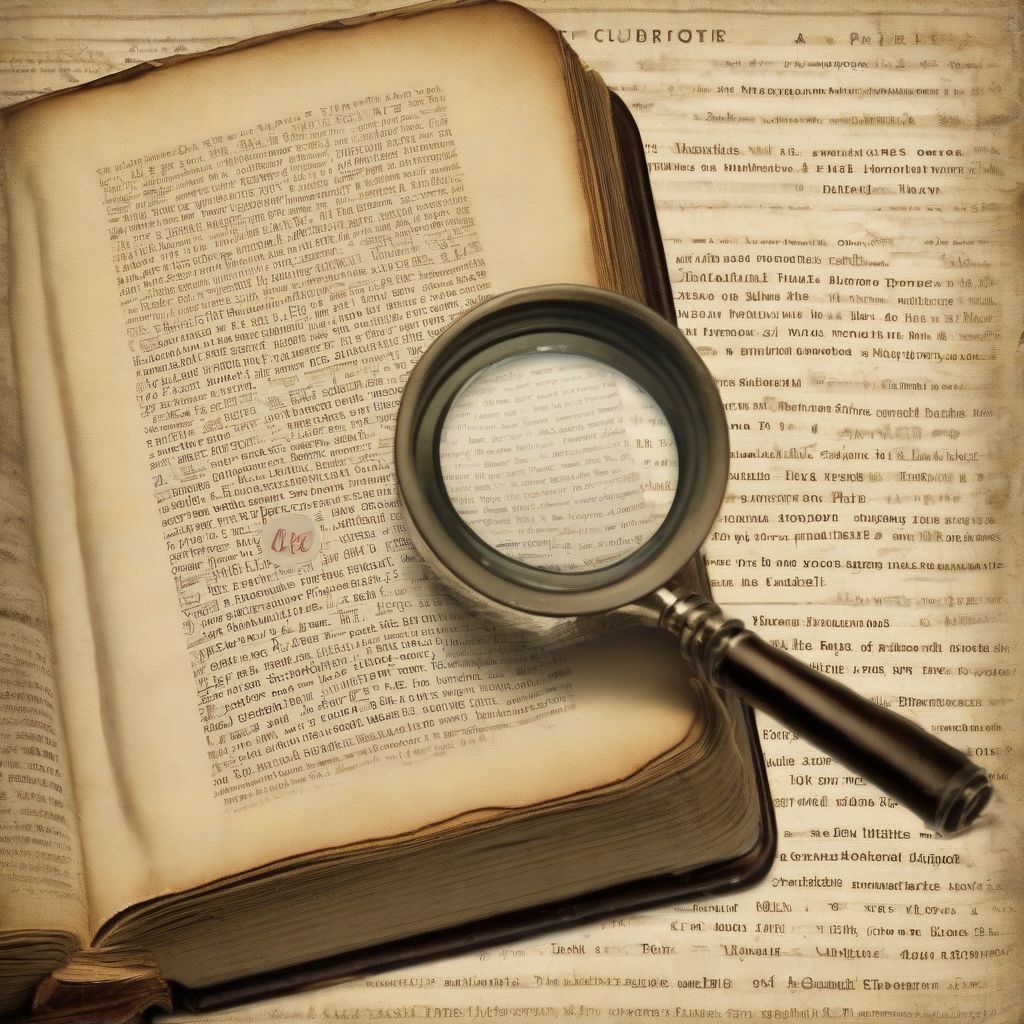Have you ever found yourself engrossed in a modern novel, only to be struck by a sense of familiarity? A character’s ambition might echo Macbeth’s, or a love story might resonate with the tragic romance of Romeo and Juliet. This, my friends, is the magic of classic literature – its themes, characters, and storytelling techniques continue to reverberate through the ages, leaving their indelible mark on contemporary writing.
The Threads that Connect Us: Identifying the Influence of Classic Literature
Recognizing the influence of classic authors on contemporary works is like discovering hidden treasures in a familiar landscape. It adds layers of meaning and deepens our understanding of the human experience as portrayed in literature. Here’s how we can spot these connections:
Echoes of Themes: Timeless Concerns in a Modern World
Classic literature often grappled with universal themes – love, loss, ambition, revenge, justice, and the search for meaning. These themes remain incredibly relevant in contemporary literature, although they might be explored through a modern lens.
For example, Emily Brontë’s “Wuthering Heights,” with its exploration of passionate love, revenge, and social class, finds resonance in novels like “Rebecca” by Daphne du Maurier and “The Girl on the Train” by Paula Hawkins. The exploration of love’s enduring power, betrayal, and the destructive nature of obsession transcends time and connects these works across generations.
Archetypal Characters: Reimagined for a New Age
Classic literature introduced us to a cast of unforgettable characters – the tragic hero, the cunning villain, the star-crossed lovers – whose traits have become archetypes, inspiring writers across generations.
Holden Caulfield, the cynical yet sensitive protagonist of J.D. Salinger’s “The Catcher in the Rye,” shares a lineage with the alienated and rebellious youth depicted in Fyodor Dostoevsky’s “Notes from Underground.” Both characters grapple with their disillusionment, offering a glimpse into the complexities of adolescence and the search for identity.
Narrative Techniques: Shaping Stories for a Modern Audience
Beyond themes and characters, classic authors pioneered narrative techniques that continue to shape how stories are told today.
The use of multiple perspectives in Virginia Woolf’s “Mrs. Dalloway” finds a modern counterpart in novels like “Gone Girl” by Gillian Flynn and “Little Fires Everywhere” by Celeste Ng. This technique allows contemporary authors to explore complex narratives by weaving together different points of view, adding layers of suspense, and challenging readers’ perceptions.
 The Enduring Influence of Classic Literature
The Enduring Influence of Classic Literature
Why Does It Matter? The Value of Recognizing Literary Lineage
Understanding the influence of classic literature on contemporary works is like having a secret decoder ring. It unlocks deeper meanings, enriches our reading experience, and reveals the interconnectedness of literary traditions. Here’s why it’s so valuable:
- Appreciating Literary Evolution: Recognizing these influences helps us understand how literature evolves. We see how authors borrow, adapt, and subvert classic themes and techniques to create something fresh and relevant for their time.
- Gaining New Perspectives: Classic works provide a framework for understanding the human experience, and contemporary authors often use these frameworks to explore contemporary issues and concerns. Seeing these connections allows us to view familiar themes through a different lens.
- Deepening Our Engagement with Literature: When we recognize the echoes of classic literature in contemporary works, it deepens our engagement with both. We begin to see the intricate tapestry of literary conversations that span centuries and continents.
Examples of Classic Influence in Contemporary Literature
Let’s look at some specific examples of how classic authors have influenced contemporary literature:
-
Jane Austen and the Modern Romance: Austen’s witty social commentary and exploration of love, marriage, and social class continue to resonate with readers today. Authors like Helen Fielding (“Bridget Jones’s Diary”) and Jojo Moyes (“Me Before You”) draw inspiration from Austen’s themes and characters, offering modern takes on love and relationships.
-
William Shakespeare and the Enduring Power of Drama: Shakespeare’s plays are timeless explorations of human nature, love, ambition, and revenge. Contemporary playwrights like Tom Stoppard (“Rosencrantz and Guildenstern Are Dead”) and Margaret Atwood (“The Penelopiad”) reinterpret and reimagine Shakespearean themes and characters for a modern audience.
-
Mary Shelley and the Legacy of Science Fiction: Shelley’s “Frankenstein,” a cautionary tale about the ethics of scientific advancement, continues to influence contemporary science fiction. Authors like Kazuo Ishiguro (“Never Let Me Go”) and Margaret Atwood (“The Handmaid’s Tale”) explore similar themes of scientific responsibility, social control, and the nature of humanity in their dystopian novels.
Continuing the Conversation: Exploring Literary Connections
The influence of classic authors on contemporary literature is a testament to the enduring power of great storytelling. By recognizing these connections, we gain a deeper appreciation for the art of writing and the interconnectedness of literary traditions. So, the next time you find yourself engrossed in a novel, take a moment to consider the literary giants whose words might be echoing through the pages. You might be surprised by the connections you discover.
Keep Exploring!
Interested in delving deeper into the fascinating world of classic literature and its influence? Check out these articles:
- How to Analyze the Influence of Classic Literature on Modern Works
- Reviewing Lesser-Known Gems in Classic Literature
- How to Trace the Evolution of an Author’s Themes Over Time
What are your favorite examples of classic influence in contemporary literature? Share your thoughts in the comments below!
[amazon bestseller=”classic literature”]
